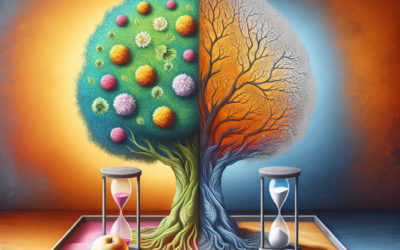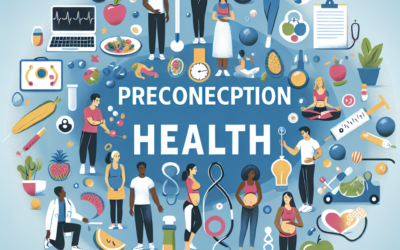Starting a new chapter as a parent is filled with many feelings. As prospective mothers, you’ll feel joy, confidence, and tiredness. It’s normal. When you start pregnancy planning, remember the emotional journey is a big part of motherhood.
This journey has ups and downs, but you can face them with courage and strength. You’re not alone in this journey. New Parents Groups Facilitators offer valuable support. They help you understand prenatal care and healthy living.
Going home after the hospital might feel tough, but holding your baby brings joy and comfort.
Understanding the Emotional Journey of Motherhood
Key Steps in Pregnancy Planning and Preconception Care
A Guide to Fostering Future Baby Moms’ Reproductive Health
The Essentials of a Healthy Lifestyle for Prospective Mothers
Key Takeaways
- Embrace the emotional spectrum as a natural part of becoming future baby moms.
- Lean on the expertise and support of New Parents Groups to begin your motherhood journey.
- Understand the importance of prenatal and postnatal care in pregnancy planning.
- As prospective mothers, prioritize your health and well-being for you and your baby.
- Trust in your innate capacity to nurture and flourish in your new role.
- Cherish each milestone with your baby as they grow and develop.
- Seek help and communicate openly with your partner and support network.
Understanding the Emotional Journey of Motherhood
Becoming a mother is not just about physical changes. It’s a deep emotional journey. You’ll feel both joy and stress, in ways you didn’t expect. Your journey will be shaped by many factors, including your own life, society, and your body.
Navigating Mixed Emotions Post-Delivery
After having a baby, you might feel happy one minute and worried the next. These feelings are common among new moms. Many feel not ready and unsure, showing the need for lots of motherhood support.
Finding balance is key. It means dealing with your inner struggles and calming your emotions over time.
Embracing the Highs and Lows with Your Newborn
Enjoying the good and bad times with your baby can be very fulfilling. Seeing your baby smile or take their first steps is amazing. But, it can also be tiring.
Studies show that being a mom can be as hard as a full-time job. It’s important to see both the good and hard parts of these early months.
Building a Support System for New Experiences
Having a strong support system is crucial for new moms. Joining support groups and community events can help you feel less alone. Sharing stories and tips with others can offer comfort and practical advice.
Remember, every future baby mom has a unique experience. Be open and informed, always looking for and giving motherhood support.

Key Steps in Pregnancy Planning and Preconception Care
Starting your journey to motherhood requires careful planning and important steps. Understanding preconception care is key. It focuses on fertility awareness, folic acid intake, and genetic counseling.

Fertility Awareness and Timing
Knowing your reproductive health starts with recognizing your body’s signals. By tracking ovulation and your menstrual cycle, you can boost your chances of getting pregnant. Using ovulation kits or apps can help. About 75% of factors affecting pregnancy or fertility can be understood by paying attention to your body and family history.
Importance of Folic Acid Intake and Prenatal Vitamins
Nutrition is crucial in preconception care. Taking a daily supplement with at least 400 micrograms of folic acid before and during early pregnancy can prevent up to 82% of neural tube defects. Also, make sure to take prenatal vitamins with iron, calcium, and Vitamin D for your baby’s and your health.
Scheduling Preconception Checkups and Genetic Counseling
Before trying to conceive, get a preconception checkup. It’s a chance to talk about your health, lifestyle, and medical history. Also, genetic counseling is important if your family has genetic disorders, with 63% needing it based on family health.
Following these steps helps you manage your reproductive health well. This increases your chances of a happy and healthy pregnancy. Every step you take towards better preconception health helps your future child’s well-being.
A Guide to Fostering Future Baby Moms’ Reproductive Health
Starting your journey to motherhood means focusing on reproductive health first. As future moms, it’s key to understand and care for your body before pregnancy. Here are some tips to boost your reproductive wellness and support your future baby moms.
- Healthy Lifestyle Changes: Eat well, stay active, and sleep enough. These habits help keep your hormones balanced and reproductive system healthy.
- Stress Management Techniques: Too much stress can hurt your fertility. Try yoga, meditation, or deep breathing to keep stress low.
- Regular Health Check-ups: Seeing your doctor often is important. These visits can spot and treat health issues that might affect your reproductive health.
- Education and Awareness: Learn about how your body works and common reproductive issues. Knowing your body helps you make better health choices.
Working with your healthcare team to create a personalized plan is key. Making the right healthy lifestyle changes for pregnancy can greatly improve your health and your baby’s.
Building a strong reproductive health foundation is good for you and your future child.
Talking openly with your partner and doctors helps manage expectations. It prepares you both for the big responsibility of raising a child. Enjoying hobbies and activities you love can also help reduce stress and keep your mood balanced.
As you plan to become a future baby mom, remember every step towards better reproductive health is a step towards a healthy start for your baby. Being adaptable and making healthy choices now will help you through motherhood. Let these habits guide you in giving your child the best start, with informed decisions and expert advice.
The Essentials of a Healthy Lifestyle for Prospective Mothers
Starting your journey to motherhood is exciting. Adopting healthy lifestyle changes is key for your health and your baby’s. Eating well is crucial, with extra calories and important nutrients like calcium and iron needed. The CDC suggests more folic acid to prevent birth defects.
Being active and getting enough sleep are also important. Exercise helps your mood and stress levels. Sleep needs change, and staying hydrated is vital due to increased blood volume.
Touching your baby can help them relax and grow well. It’s not just nice; it’s essential for their brain. Breastfeeding is also beneficial, but it can be tough. Getting help and advice is important.














